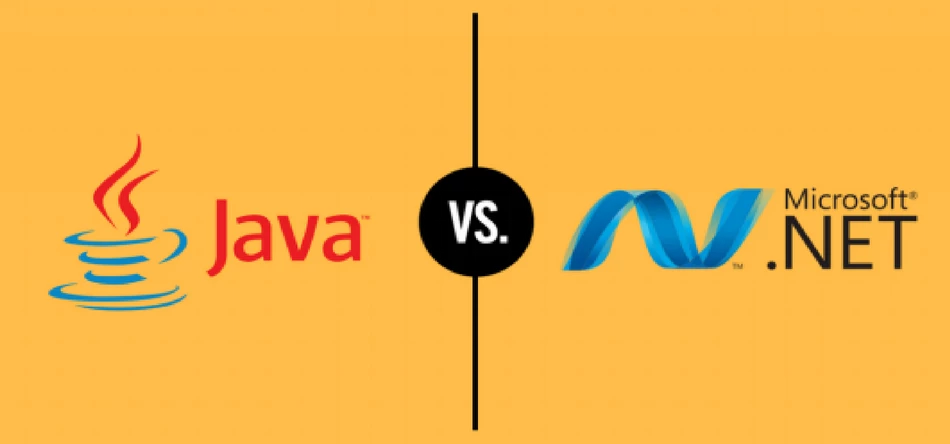
Partner Article
Which One Is Better – Java or .NET?
Much has been talked about the future of Java and .NET. There are plenty of similarities between .NET and Java, but there exist some distinct differences that set each one apart when it comes to software development. Java is one of the most widely used programming languages and .NET is a framework supported by Microsoft. But to have a better understanding, we will consider Java as a platform.
Java
Java is a general-purpose programming language used for developing high-quality applications for both computers and mobile phones. It was originally created as a set of programs and standards by Sun Microsystems which was later acquired by Oracle Corporation. Java works well with any platform including Linux, iOS, Android, Windows, etc. It is free to use and provides an easy interface making it a great prospect to leverage for any Java software development company. It is portable and platform independent with an ability to manipulate Java encryption. The Java platform consists of:
- JE frameworks such as JEE, J2EE
- Java Run Time Environment (JRE) which comprises of Java Virtual Machine (VM), Just-in-time compiler, and Bytecode verifier, and several libraries
.NET .NET is a software framework for creating applications on Windows server and client operating systems. Though its features and functionalities are specifically designed for developing and running applications on Windows, it also supports connectivity with non-Windows platforms. .NET comprises of five key components:
- Windows operating system
- Windows Enterprise Servers
- .NET Framework which includes Common Language Runtime (CLR), Framework class libraries, and ASP.NET
- .NET Building Block Services
- Visual Studio.NET toolset
Both Java and .NET are object-oriented, type-safe, and provide automatic garbage collection. They also provide an ability to build and integrate web services which make the application interoperable and more extensible. Basically, both these platforms offer various toolsets to achieve a similar goal – enterprise application development. Additionally, each one has a set of features, components, and services that provide a standard way of executing tasks such as scripting Web pages, accessing databases, connecting to remote resources, and handling messages.
Although they are similar in many ways, there are many differences in the services and features of these platforms. Take a look at the comparison of the important Java and .NET features and services summarized below.
Features/Service
1. Operating system
- Java - Multiple
- NET - Windows
2. Runtime
- Java - JVM (Java Virtual Machine)
- .NET - CLR (Common Language Runtime)
3. Server Components
- Java - EJBs
- .NET - .NET, COM + serviced
4. Client/GUI Components
- Java - JavaBeans
- .NET - .NET class
5. Web Server Scripting
- Java - JSF (Java Server Faces)
- .NET - ASP.NET
6. Data Access
- Java - JDBC
- .NET - ADO.NET/oleDB
7. Object Persistence
- Java - Hibernate
- .NET - Entity Framework. NHibernate
8. Message Queuing
- Java - JMS on MQSeries
- .NET - Sys. Messaging, MSMQ
9. Asynchronous Invocation
- Java - EJB Message Beans
- .NET - COM + QC
10. Remoting
- Java - RMI – over – IIOP
- .NET - SOAP, HTTP, DCOM
11. Naming
- Java - JNDI
- .NET - ADSI
12. XML
- Java - JAXP
- .NET - System XML
13. HTTP Engine
- Java - Application servers from multiple vendors
- .NET - IIS
14. Web Services Support
- Java - Add-on
- .NET - Built-in
15. Unit Testing
- Java - Junit
- .NET - Microsoft Unit Testing Framework, NUnit
16. Web Application Framework
- Java - Spring
- .NET - ASP.Net, MVC, Spring.NET
Conclusion:
Both Java and .NET are ideal for developing applications. The decision of choosing one over the other depends on the requirements of your application, budget and team skills. Java is a profitable option as it is free to use and has a helpful community. Whereas .NET offers valuable services like Linq. So, take your pick wisely!
Which platform is better according to you – Java or .NET? Let us know in the comments below.
This was posted in Bdaily's Members' News section by Technoblogger .








 Raising the bar to boost North East growth
Raising the bar to boost North East growth
 Navigating the messy middle of business growth
Navigating the messy middle of business growth
 We must make it easier to hire young people
We must make it easier to hire young people
 Why community-based care is key to NHS' future
Why community-based care is key to NHS' future
 Culture, confidence and creativity in the North East
Culture, confidence and creativity in the North East
 Putting in the groundwork to boost skills
Putting in the groundwork to boost skills
 £100,000 milestone drives forward STEM work
£100,000 milestone drives forward STEM work
 Restoring confidence for the economic road ahead
Restoring confidence for the economic road ahead
 Ready to scale? Buy-and-build offers opportunity
Ready to scale? Buy-and-build offers opportunity
 When will our regional economy grow?
When will our regional economy grow?
 Creating a thriving North East construction sector
Creating a thriving North East construction sector
 Why investors are still backing the North East
Why investors are still backing the North East